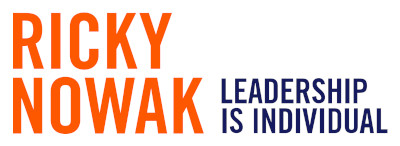
Distractions or disruptions often happen when we least expect or want them. They also arise because other than thinking a raised eyebrow or a loud sigh will give people a clear message that it’s frustrating, most people don’t address the habits, behaviours or consequences. Sometimes it’s due to fear, sometime due to lack of authority, and sometimes we just don’t know how. In any case, when it is not addressed, we endorse it happening again… and again… and again. So, it doesn’t matter how many times we grumble under our breath, or think people will understand our pressures, unless we name the issue, agree on ground rules that protect the integrity of our work and our time, and set in place new behaviours, nothing will change.
The key to taking control is to put control around the problem itself and decide what needs to change, when and by whom. By failing to do this one step our work and time will risk being continually hijacked elsewhere. The most important thing is to bring the elephant into the room and discuss the financial and mental cost of interruption and what steps can be taken to ensure distractions are minimized and output is maximised.
But it begs the question to ask if we equally are a distraction or a disruption to others? It’s often easy to blame or recognise when others are getting in the way, but often we too can be guilty of the same behaviour. If you have ever said ‘Oh, have you got a minute.. just wanted to ask you to…..? or “I need you to do this for me as soon as possible because I have to have it by 3.00pm today – it’s urgent..” then you too may have failed to consider the impact and cost of the distraction on the current task they may be doing.
The key to handling distractions is about setting some boundaries and identify what is getting in the way of completing tasks that have a deadline or that have multiple responsibilities all requiring attention. The simple rule of communicate before advocate not only makes for good results but makes good business sense.
Here’s a few tips on how to go from overwhelmed to over the moon and get things done!
1. If someone repeatedly distracts or disrupts you (whether it’s convenient for you or not), don’t have the conversation when they may be under pressure to have something done. Find a place outside the busy-ness, and advise them of how you feel when unexpected pressures arise, the stress of re-prioritizing your work for you and for others, as well as the challenge of competing tasks that may all require attention.
2. While you may want to say to the interrupter…”You’re the real reason why things don’t get done here!, flip it over and say, “We all have to complete certain work in certain times, and there are certainly some areas that we are all struggling with. Some of the challenges that I’ve been facing lately is not being able to complete some work, and I’m trying to get a grip on how to manage that. I’m wondering if I can have a chat with you perhaps about some of the things that we are doing, that would help me get stuff done! It might also help you.”
This way there’s no heat in the conversation. It also means that we don’t begrudgingly take on another task at the expense of something else. It means we are clear. It means we can stay focussed on a task. The good thing is we can also ask others the same sort of question on the reverse, such as, “Is there anything in what I’m doing that may disrupt or distract you when you’re working on tasks?” Give the other party permission to give feedback. It might be salient feedback. At the very least it will be an eye opener, and at the very best, it will open up opportunities to work smarter.
Here is another consideration to be mindful of: Distractions can also take people away from their peak performance time. In business today the diverse age groups, cultures, styles, values, personalities mean the workplace has people with their own unique set of needs.Some people are at their peak mid-morning to early afternoons. Others come in gung-ho at 7 a.m. in the morning. Then there are those who are snoozing at their desk at three o’clock but fire up again after 9.30 that evening. Because of these differences, it is all the more important we consider if the distraction may be coming at a time when that person is at their peak and if so, is the distractions or disruption likely to interrupt their results.
So the next time you are thinking of momentarily interrupting someone for a moment of their time consider if the interruption is worth distracting their concentration at that particular time for it may cost you more than you think.
Recent stats in business today, show that it can take 15-20 minutes to bring back full focus after a distraction or interruption. Multiply that over that over the week, and it works out to be a third of our time. That’s a pretty hefty figure, if you look at that in dollars and cents.
Encourage courageous conversations so people know what is happening is not working for them and ways to improve their communication at appropriate times so that they will help decrease unnecessary disruptions and interruptions and eliminate costs or wastage.




